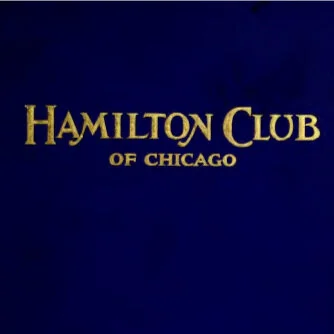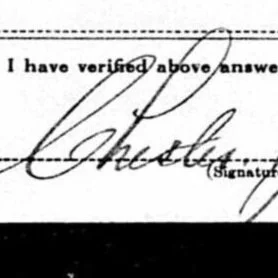H. E. Gilbert and the 1931 Goetz Theater
When I found out that the fabled Goetz projector patent was a misunderstanding, one of the first questions that came to my mind was: “Well, what funded the 1931 Goetz Theater, then?”
This is a difficult question to answer, because business records from that time no longer exist. In 1931 the Goetz Brothers’ chain of movie theaters was less likely to be the source of funds, because some unwise 1927 investment decisions in Milwaukee had forced them to retrench. While Leon’s Movie-Phone company appears to have prospered for about 24 months until late 1929, there is some reason to believe business wasn’t as grand as Leon’s advertising materials suggested. It’s possible that Leon’s ‘health film’ ventures were profitable, but legal battles with his partners certainly bit into whatever share of the profit he enjoyed.
Outside financing is one remaining possibility, and contemporary press reports show that the 1931 Monroe Theater renovation project was actually initiated by someone called H. E. Gilbert. The Goetz brothers took over the project after H. E. Gilbert had arranged some measure of financing and planning.
H. E. Gilbert was active in the theater business in Freeport, IL, a town about 30 miles south of Monroe, WI. Gilbert partnered with an extremely well-connected, one might even say ‘celebrity’ hotel manager named Houston Bond. Bond worked managing one of Freeport’s ritzy hotels called “Hotel Freeport”. As the Freeport Journal-Standard reported on Feb 1st 1929:
“He [Bond] comes to Freeport from the Plankington Hotel in Milwaukee, and brings with him many members of his former staff from that hotel. Prior to going to Milwaukee, Mr. Bond was connected with the Hotel Atlantic, Hotel Blackstone, Hotel Lasalle, and the Hamilton Club, all of Chicago; also the Chamberlian, of Des Moines, IA., and the Waldorf, of Toledo, Ohio.
Possessed of a genial personality and a degree of affability which makes you feel at home the moment you make his acquaintance, Mr. Bond is well qualified to extend a welcome to the public in his capacity as local manager of this modern, new hotel.
Mr. Bond is unmarried and his fraternal affiliations include a membership in all the branches of the Masonic fraternity.
Welcome to Freeport, Mr. Bond!”
What caught my eye in the previous quotation was mention of the Hamilton Club. The Hamilton Club was a Republican Party social club in Chicago that featured prominently in Teddy Roosevelt’s presidential campaigns and early ‘moving picture’ technology. Teddy was forward in his use of cinema to promote himself, and events surrounding the Spanish-American War were particularly useful to this end. The 1913 directory of the Hamilton club states:
“Several large meetings were held during the campaign of 1900, the most important of which were the great Roosevelt meeting at the Coliseum, with an overflow in the First Regiment Armory and two immense gatherings in the Auditorium Theater. Throughout this entire campaign, nightly stereoptican exhibitions of scenes in the Spanish-American War were given, with short presentation of Republican doctrines.”
The club held annual events to commemorate the birth of Alexander Hamilton, the driving force behind the creation of the first central bank in the United States, as well as the surrender of Confederate General Lee to General Grant at the Appomattox Court House in Virginia— the defeat of the Southern States in the American Civil War.
The Hamilton Club, Chicago exterior circa 1913.
However, the Hamilton Club’s connections to the early film industry go deeper than a theater in a small Wisconsin town. A life-member and 1901-1903 board director of the Hamilton, Mr. Isaac Miller Hamilton, was president and co-founder of the Federal Life Insurance Company, whose Wisconsin agent was Harry Aitken. It was Aitken’s earnings from Federal Life that financed (at least in part) his entry into the movie business.
Harry Aitken was the driving force behind the Chicago arm of the independent film company faction that challenged the ‘Edison Trust’, and later the “independent” monopoly formed by Karl Laemmle. Aitken and Monroe native John R. Freuler founded Mutual Film, Arrow Film, American Film, etc. They worked closely with Theodore Roosevelt to promote US entry into WWI from about 1916.
Movie historians will immediately see the significance of the Goetz Bros. connection to Gilbert, Bond and I. M. Hamilton. Bond was the maitre d’ of Hamilton’s club and both men— Bond and Hamilton— were proud of their Freemasonry connections; the existence of both social clubs served to grease the wheels of commerce and politics in Chicago.
When H. E. Gilbert chose to revamp the Monroe Theater in 1930, he wasn’t starting from scratch; a Monroe Theater existed in the town since the early 1910s when a power-couple named Gruwell left the Arrow Film Corporation to found this theater. The Gruwells struck out to Wisconsin around the time John Freuler returned from a European trip investigating the financial viability of movie theaters in small rural towns. This trip happened at the height of the theater-acquisition phase in the competition between Laemmle’s trust/monopoly and the Chicago independents, as well as members of Edison’s struggling trust.
That employees of Freuler should return to Freuler’s hometown to implement an early incarnation of his strategy for building Freuler/Aitken conglomerate Mutual Film’s theater presence is quite natural. It was through the Gruwell’s Monroe Theater that Leon Goetz broke into the theater management business.







